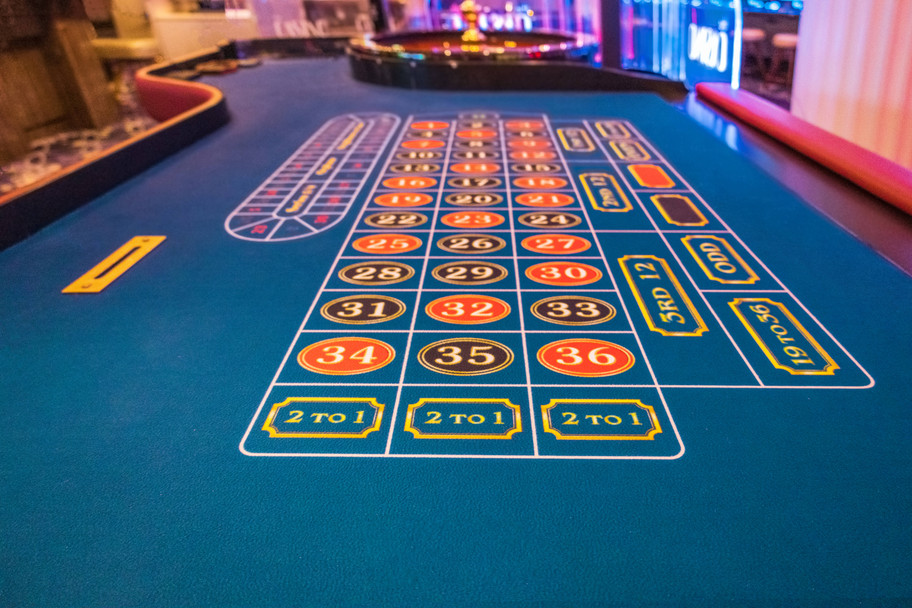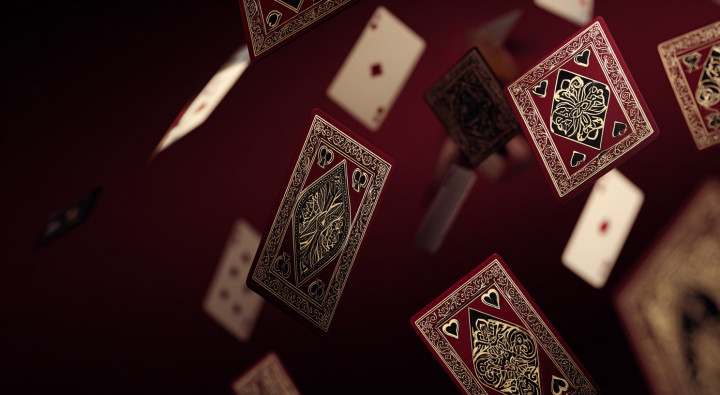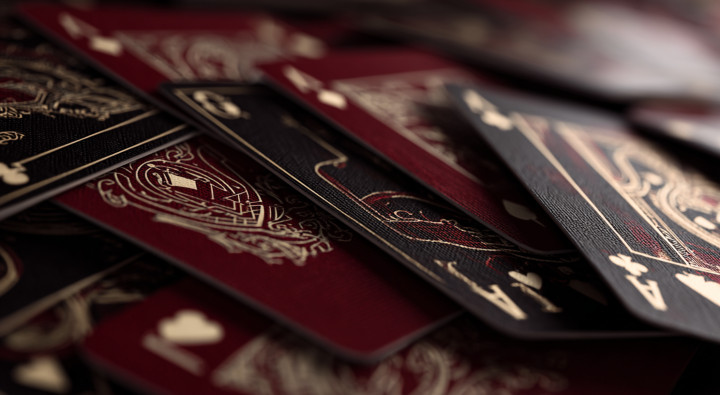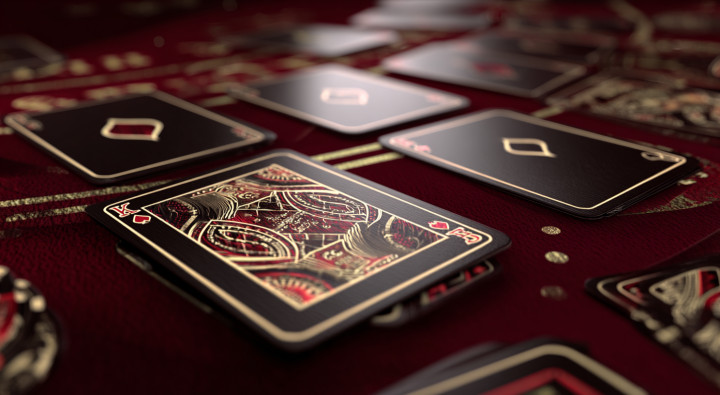What is edge sorting - and is it cheating?

In the high-stakes world of casino gambling, where fortunes are won and lost on the turn of a card, few techniques have sparked as much controversy as edge sorting.
This sophisticated advantage play method has divided opinions across the gambling world, with some viewing it as legitimate gamesmanship while others condemn it as outright cheating.
Check out the best UK online casinos to claim offers worth up to £9,500 and over 3,500 free spins!
The debate reached fever pitch in 2012 when professional poker player Phil Ivey used edge sorting to win over $21 million from two prestigious casinos, sparking legal battles that would ultimately reshape how the industry views this technique.
But what exactly is edge sorting, how does it work, and where does it sit on the spectrum between clever play and cheating? The answers are more complex than you might expect.
Understanding edge sorting: the art of imperfection
Edge sorting is a method of identifying face-down cards by noting very small differences in the patterns on the back of the cards.
Even though for most people one face-down card is the same as another, it is possible, with certain decks, to distinguish cards on the basis of their reverse sides.
The technique exploits a fundamental flaw in card manufacturing. Edge sorting is possible when cards are unintentionally manufactured with tiny differences on their edges - for example, when the edge of one long side is marginally different from the edge of the other.
These imperfections are virtually invisible to the casual observer, but to a trained eye, they can reveal whether a face-down card is high or low value.
For edge sorting to work, the cards used in the game have to have patterns that are not perfectly symmetrical. The luck vs skill debate in gambling could come into play here, striking the balance can be crucial.
For example, a deck with a diamond pattern on the back may have half-diamond shapes on one end and full-diamond shapes on the other.
When these cards are rotated 180 degrees, the asymmetrical patterns become distinguishable, creating a roadmap for those who know what to look for.
The process requires exceptional visual acuity and attention to detail. You'd need incredible eyesight and great attention to detail.
Not only that, but you'd also have to be extremely deceptive so that the dealer rotates the cards the way you want, and not get caught when doing so!
The mechanics of edge sorting
Successfully implementing edge sorting requires a perfect storm of conditions and considerable skill in social engineering.
During the course of a game, the player asks the dealer to rotate high-value face-up cards, saying for example that they feel it will bring them luck.
The dealer, indulging in superstition, does not realise he or she is unwittingly orienting the cards such that valuable high cards are oriented one way in the deck and low cards the other way round.
This deception is crucial to the technique's success. Players must convince dealers to accommodate what appear to be harmless superstitious requests.
Casinos, eager to keep high-rolling customers happy, often indulge these seemingly innocent rituals without understanding their true purpose.
The technique also requires specific technical conditions. For this strategy to work, it's also essential that the casino uses an automatic card shuffler as the machine will not rotate cards during the shuffle.
It’s the total antithesis of chaos theory to beat the house, but can work so effectively too.
If this process were done manually by the dealer, the entire setup would be spoiled, and the player would get no advantage. Manual shuffling can "wash" the cards, randomising their orientation and destroying the carefully orchestrated pattern.
Over the course of a game being played this way, low cards will tend to be oriented one way, high cards the other.
Once a significant proportion of cards have been rotated, any player who knows this can gain a statistical edge more than outweighing house edge. This is often by using the knowledge whether the card to be turned is likely to be low or high.
The potential advantages are staggering. Depending on the game and which cards were targeted for sorting, players with perfect card knowledge of, say face card or not face card in some poker games.
Or six, seven, eight, nine, and then anything else in Baccarat, could lead to advantages as high as almost 7% in Baccarat and a staggering 61% in games like Mississippi Stud.
The Phil Ivey cases: when edge sorting made headlines
The edge sorting controversy exploded into public consciousness through the high-profile cases involving poker play Phil Ivey, one of the world's most successful poker players.
Working with professional gambler Cheung Yin Sun, Ivey executed edge sorting operations that netted millions, but ultimately landed both players in court.
In 2012, Ivey and partner Cheung Yin Sun won US$9.6 million playing baccarat at the Borgata casino in Atlantic City, New Jersey. But this was just the beginning.
Ivey took Crockfords for $9.6 million playing high stakes baccarat. The casino was suspicious and refused to pay out, giving Ivey only his $1 million deposit back.
The sophistication of their operation was remarkable. They'd asked for a specific brand of playing cards with a distinct white-circle pattern on the back.
Read: Why even good bettors experience losing streaks
They asked to use a shuffling machine and, once completing the shoe, they asked to keep using the same decks.
In the first round of games, they had the dealer rotate all the sevens through nines, the most valuable cards in baccarat, as they first came out of the shoe.
When the dust settled, both casinos refused to pay Ivey's winnings, leading to lengthy legal battles.
The courts' decisions would establish important precedents for how edge sorting is viewed legally. It was judged that the edge sorting was "cheating for the purpose of civil law".
It was accepted that Ivey and others genuinely considered that edge sorting was not cheating, and deemed immaterial that the casino could easily have protected itself.
In 2016, a Federal Judge ruled that Ivey and Cheung Yin Sun were required to repay $10 million to the Borgata.
U.S. District Judge Noel Hillman ruled that while Ivey and Sun did not commit fraud, they did breach their contract with the casino by not abiding by a New Jersey Casino Controls Act provision that prohibited marking cards.
The legal and ethical grey area
The question of whether edge sorting constitutes cheating remains one of the most hotly debated topics in gambling circles. The answer depends largely on how you might define cheating and what legal framework is applied.
From a technical legal standpoint, edge sorting isn't illegal, in the same way that card counting isn't technically illegal. Most laws stipulate that cheating has to involve some sort of interference with the game.
With edge sorting, players aren't using any special tools or even physically touching the cards, so there are no elements of cheating as such.
This distinction is crucial because traditional cheating typically involves marked cards, collusion, or mechanical devices that directly manipulate the game.
However, the courts have taken a more nuanced view. UK courts for instance didn't see it that way, though.
Although they didn't say Ivey was cheating, they all agreed that he had no proper claim to the money.
They concluded he was purposefully dishonest, asking the dealer to rotate cards under false pretences (claiming he was superstitious), which interfered with the regular flow of the game.
The ethical arguments are equally complex. In most cases, people classify it as an advantage play rather than outright cheating.
That said, most casinos don't approve for obvious reasons. Supporters argue that edge sorting exploits manufacturing defects and casino procedures without directly manipulating the game.
Critics contend that the deception involved in convincing dealers to rotate cards crosses ethical lines.
Most rational people who understand edge sorting. But crucially, how it is accomplished would tell you it is cheating in the sense that you've gained an edge over the house that you were never meant to have, and recent court cases seem to bear that out.
But they would also tell you that the burden is generally on the casino to protect itself and that edge sorting is not criminal behaviour.
Things to consider
For players considering edge sorting, the risks far outweigh any potential rewards. In the sense that you could not only be accused of cheating, but blacklisted from casinos.
Plus, edge sorting isn't possible at an online game casino — only when playing casino games live in a traditional casino setting.
The digital nature of online gambling eliminates the manufacturing imperfections that make edge sorting possible.
Edge sorting represents a fascinating intersection of mathematical skill, psychological manipulation, and ethical ambiguity.
Read: What is return to player (RTP) in casino?
While technically not illegal in most jurisdictions, the courts have consistently ruled against players who employ the technique, establishing it as a form of civil cheating regardless of criminal implications.
The edge sorting debate ultimately reflects broader questions about the nature of gambling, fair play, and the eternal cat-and-mouse game between casinos and advantage players.
While the technique itself may be obsolete, the ethical questions it raised continue to resonate throughout the gambling world.
Reminding us that the line between clever play and cheating often depends on perspective, interpretation, and the willingness of courts to side with casinos over players.
Responsible gambling with FIRST
You must be 18+ to gamble. Gambling is a form of entertainment, not a way to make money. Our tips and advice help you enjoy gambling, but there is always a chance a bet or casino game can lose.
Never bet more than you can afford to lose. Stop betting if you are angry, emotional or under the influence of alcohol.
Warning signs of problem gambling: chasing losses, betting money needed for bills, or feeling unable to stop.
Need help? Visit our responsible sports betting page or our responsible casino gambling page, or contact the support organisations listed below if you're struggling to control your gambling:
Gamblers Anonymous UK
BeGambleAware
GAMSTOP
National Gambling Support Network
Gamcare
NHS National Gambling Clinic






 Poker terms glossary – an A to Z of common poker terms
Poker terms glossary – an A to Z of common poker terms
 What is card counting? Demystifying the maths behind blackjack strategy
What is card counting? Demystifying the maths behind blackjack strategy
 Is online blackjack rigged?
Is online blackjack rigged?
